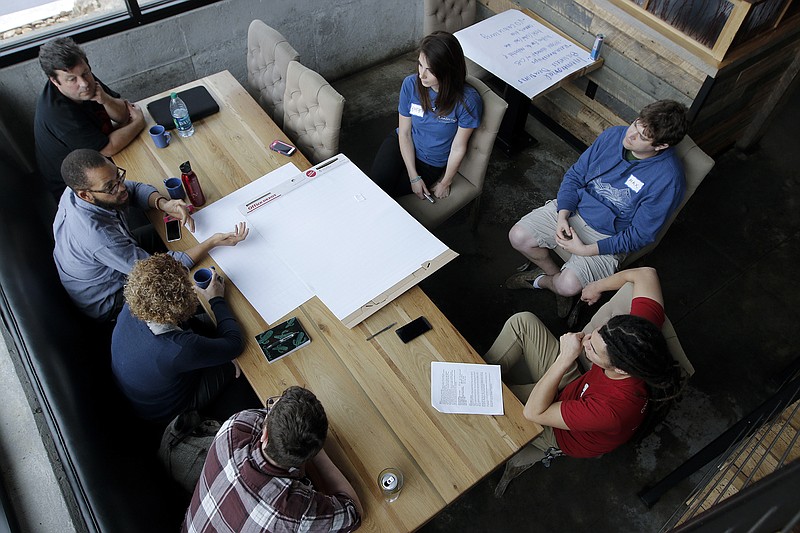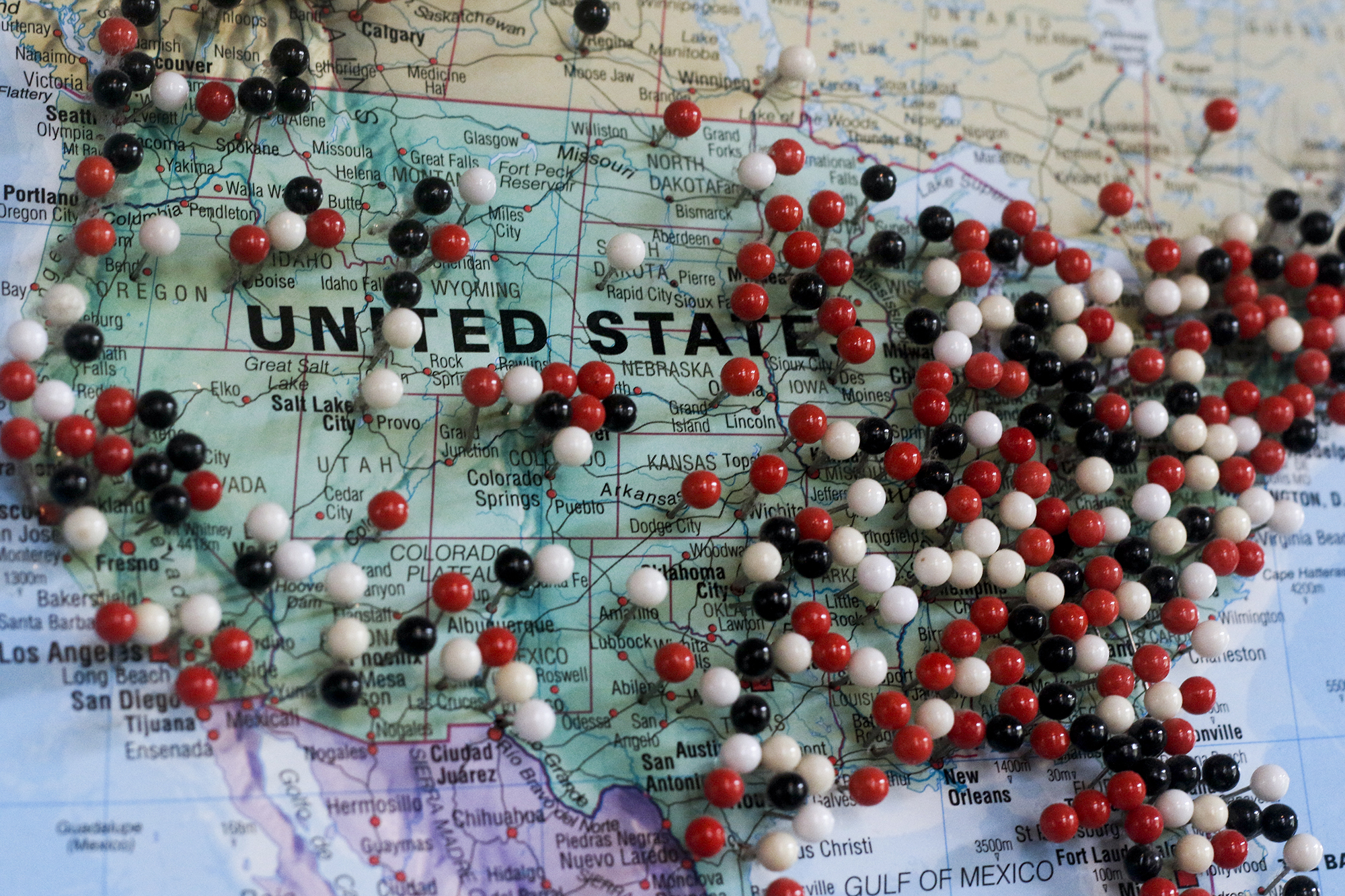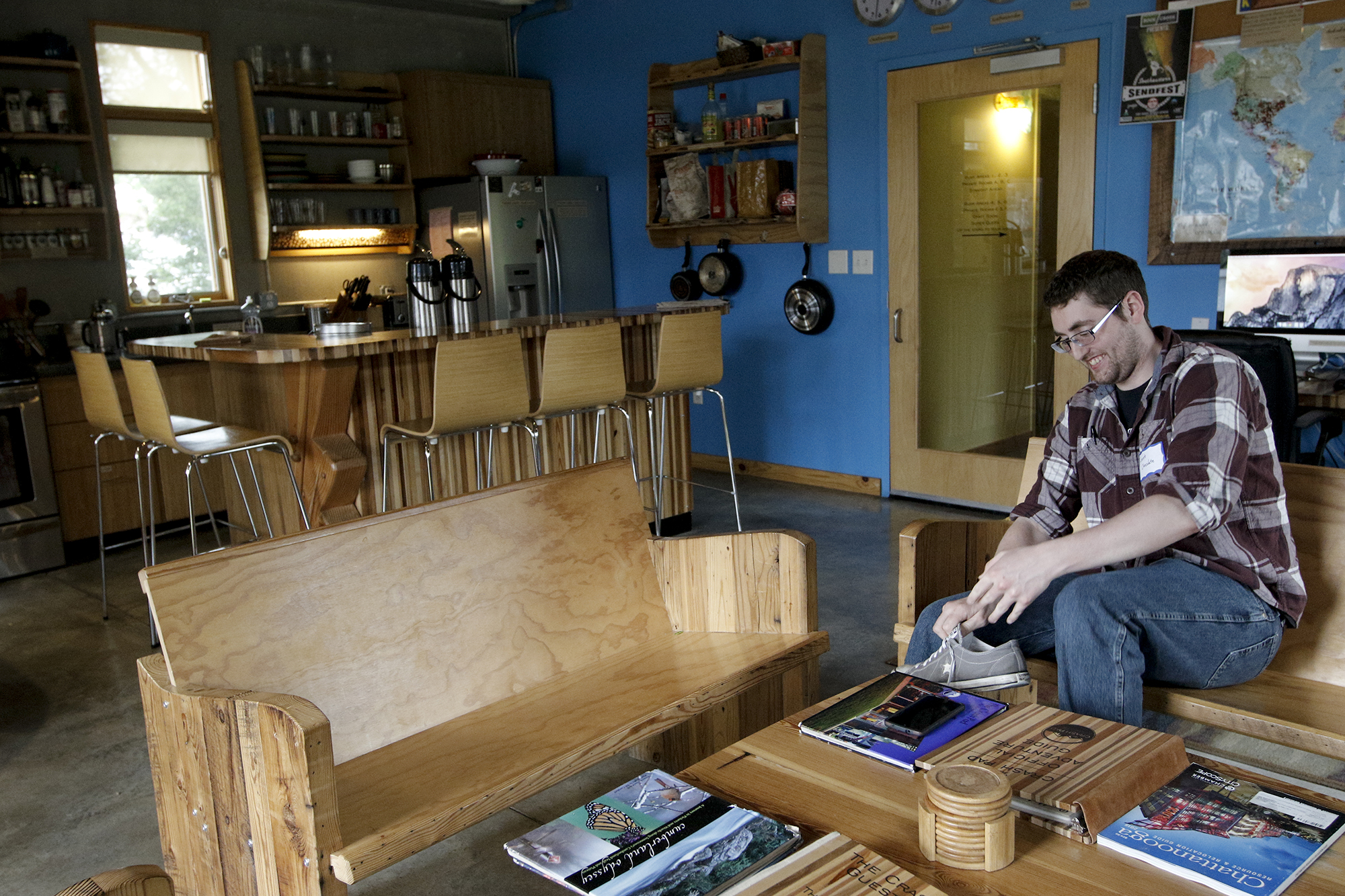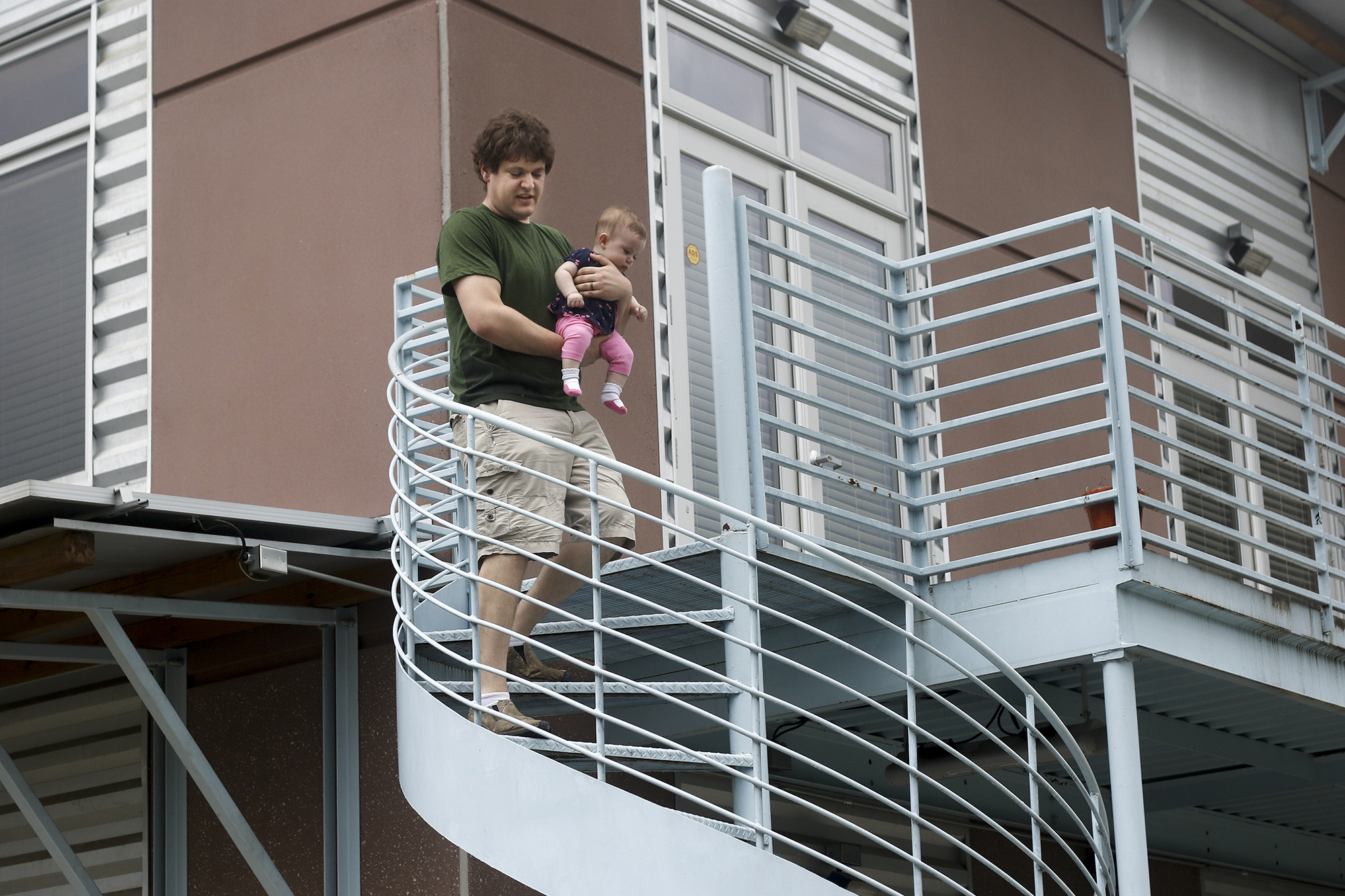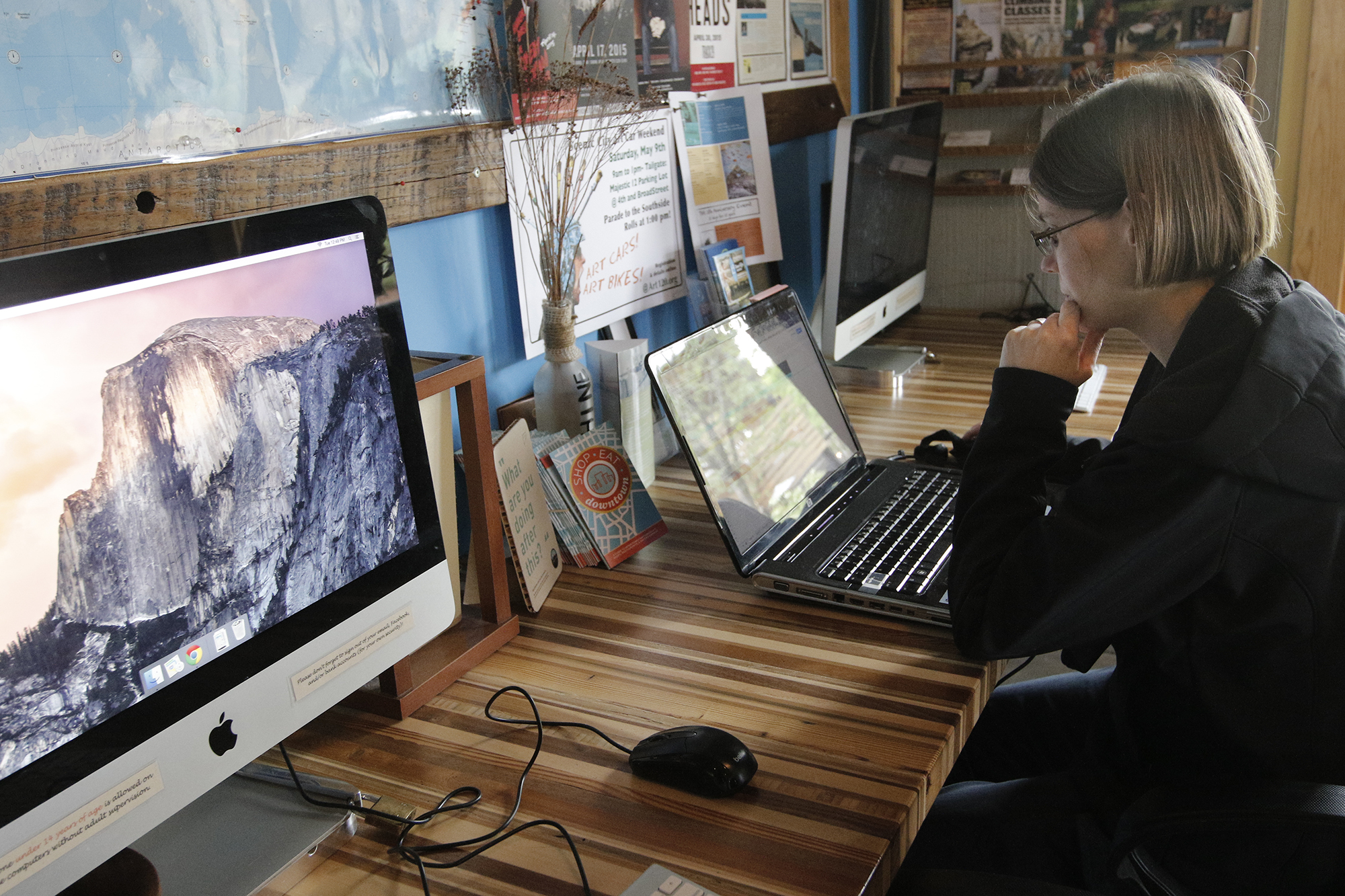Kevin Bowen has seen tortoises the size of Volkswagens and luminous turquoise sea life that glows on the crest of ocean waves in the Seychelles islands. He's walked in pastel temples, past giant Buddhas against the backdrop of the Himalayan Mountains in Nepal and strolled past street tango artists in baroque Buenos Aires.
But the travel memory he treasures is the night he awoke in his bunk bed in a hostel in Barcelona, Spain, to see a thief escaping out the window with his wallet -- and all his money, credit cards, smartphone, driver's license and passport. OK, seeing the thief take everything he had wasn't a moment to treasure, but what happened after was.
Trends in hostel guests
* Most hostel guests on every continent are age 25 to 34. * The fastest-growing demographic among hostel guests is 35 age and older. * The 35-plus age group stayed in hostels most often in Western Europe and Africa. Source: 2010 Nordic Hotel Consultancy global survey
"It was a terrifying few minutes, but then all the hostel guests joined forces around me," Bowen remembers as he relaxes under the soaring ceilings of the Crash Pad, Chattanooga's elegantly designed hostel behind the Chattanooga Choo Choo. "The hostel owner comped me three nights and other guests gave me money to get through the days while I waited for my credit cards; (they) loaned me their phones."
They also cheered him up by including him on their rambles through Barcelona's surrealistic architecture and days at the beach.
That experience convinced Bowen that hostels were not simply "cheap places to stay because the guests share bathrooms and sleep in bunks. A good hostel like the Barcelona one is a community where you make friendships that last years."
Most folks probably picture hostel guests as unshaven (both male and female) and potentially unwashed young adults and college students in T-shirts and jeans, hauling backpacks and not much money across foreign countries. And that's true to an extent. Most hostel guests are willing to forego linens, TV, privacy and air conditioning because all they want is to pay a few bucks for a shower and a clean mattress. Hostel decor often resembles a minimum security prison whose feckless attempts at decoration -- battered fringe lamps, brown curtains the color of despair -- make the rooms even grimmer.
But Bowen and others see a bigger -- and more well-to-do -- market, one in which the more adventurous are already taking the hostel route.
"I think there's a way to make that appeal to older travelers," Bowen says.
He now manages a unique Chicago hostel and, like 27 other hostel managers and owners who met at the Crash Pad Powwow recently, he wants to own his own hostel one day that attracts travelers of all ages. The Powwow was held for the first time this year and was organized by Crash Pad manager Jordan Haag, 24, who says it will be an annual event in which hostel owners can swap ideas about how to appeal to a broad array of guests.
Half the Powwow attendees were millennials -- backpackers, hikers and cyclists in their 20s. As said before, the norm for hostel guests. But they want to venture outside their age bracket, wooing Gen Y and baby boomers with amenities like free Wi-Fi, swimming pools and nicer accommodations. They believe cheap rates combined with key upgrades make hostels the perfect lodging in an era when paychecks are shriveling worldwide but the yearning to explore the world seems boundless.
The Crash Pad, which opened in 2011, is a good example of a hostel that draws middle-aged roadtrippers while maintaining its cool factor for rock climbers and Ironman competitors. The Southside building is as beautiful as a sculpture with a slanted roof and silvery outdoor spiral staircase to the second floor.
It earned a LEED Platinum certification for its energy efficiency and also was given a "GreenLight" award from Chattanooga-based GreenSpaces for being an environmental steward. Inside, the lobby has repurposed wood benches, polished concrete floors, a big fridge full of tea, juices and fruit and a breakfast bar. The Crash Pad has freshly laundered linens for guests and each bunk has an individual curtain that can be pulled around it for privacy. Last month, New York magazine recommended it along with The Chattanoogan and StoneFort Inn in a travel article about Chattanooga.
"We make it clear to guests that we welcome everybody. We have a group of ladies in their 50s who book the whole place every year. I love those ladies! They're awesome!" says general manager John Ying, a millennial whose enthusiasm made every exclamation point authentic.
Around the world, hostel amenities vary widely. The IHSP Chicago Hostel where Bowen works has basic furnishings, but it also boasts a deck that zigzags across its rooftop, widening in some places for picnic tables, narrowing in others so a couple can enjoy some privacy. Every angle offers spectacular skyline views. It also has free Wi-Fi and computers, games such as pool tables and foosball and private rooms for those who want them.
"Chicago is famous for its great, historic bars so we do get some guests, really nice Australians and Brits, who come to drink and do pub crawls," remarks Bowen. "At the same time, my hostel is getting visitors who came from all over the world to see the famous art museums and the live theater scene.
"It's good that our appeal is broad, but there can be tension between those two groups so you have to be a good manager and make sure they both have a good time without disrupting each other's stay."
Susan Shonk helps her family run a hostel named Room2Board on Jaco Beach in Cosa Rica, a surfing mecca. Perched on a hillside, the architecture has a striking Jetsons style and offers a swimming pool, yoga room, surfboard storage and solar-heated well water to keep guests hydrated and healthy. The bedrooms have fans but air conditioning is available on request.
Amenity choice often has a philosophical basis depending on the hostel. Ying says the Crash Pad would offer Netflix streaming in the common room where "House of Cards" and "Orange is the New Black" binges could be a fun way to bond. But it would probably never put TVs in the bedrooms because that would isolate guests from each other, he adds.
Paul Kletter and his wife, Marybeth Karabinos, are prototypical millennial entrepreneurs. They earned the money to launch their hostel business by launching a new pedicab business in Pittsburgh. The rickshaw-like carts with jaunty green roofs were driven by bicyclists and proved popular enough to help the couple by a historic russet-red brick building on Pittsburgh's blossoming South Side. They plan to open a boutique hostel, called Traveler's Rest, this June.
"We're going to offer a female-only wing so solo women travelers will feel more comfortable; some women tend to think of hostels as being like coed dorms where the guys may walk in while women are still using the showers," Karabinos says. "We're even going to offer some private rooms that will have in-suite bathrooms, which is a big departure from the norm for hostels."
Kletter says they "want all types of visitors, high school students with their parents checking out Carnegie Mellon (University), families, church groups, businesswomen who feel safer at our place than an impersonal hotel because they know we're looking out for each guest."
Powwow guests slept at the Crash Pad but their meeting actually unfolded over beer and burritos next door at the Flying Squirrel Bar, which Crash Pad owner Max Poppel also owns. Chattanooga Convention and Visitor's Bureau CEO Bob Doak arrives after lunch to lead a discussion about city-hostel alliances -- and hostilities.
"I'm way overdressed for this," Doak jokes, taking off his suit jacket and loosening his tie as his glance swept across the crowd dressed in shorts, jeans and T-shirts. "But I promise you that whether we're dressed in suits or shorts, Chattanooga loves the Crash Pad and values hostels just as much as we appreciate a 300-room hotel. You're reaching visitors we want."
Many of the hostel owners told him their cities did not share his attitude, and the discussion turned to Nashville where attendees insist that bigfooted, deep-pocketed hotel industry lobbyists often come to city government meetings to denigrate hostels by describing them as havens for transients and drunken party animals. Owners say they all have rules at their hostels to prevent any behavior that might bother neighbors, but they often feel outgunned by the lobbyists.
Doak reassured the group that, in his view, more hostels would add more to Chattanooga's coffers.
Contact Lynda Edwards at 423-757-6391 or ledwards@timesfreepress.com.
